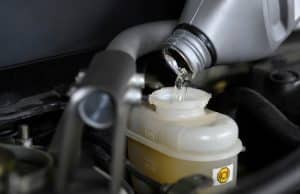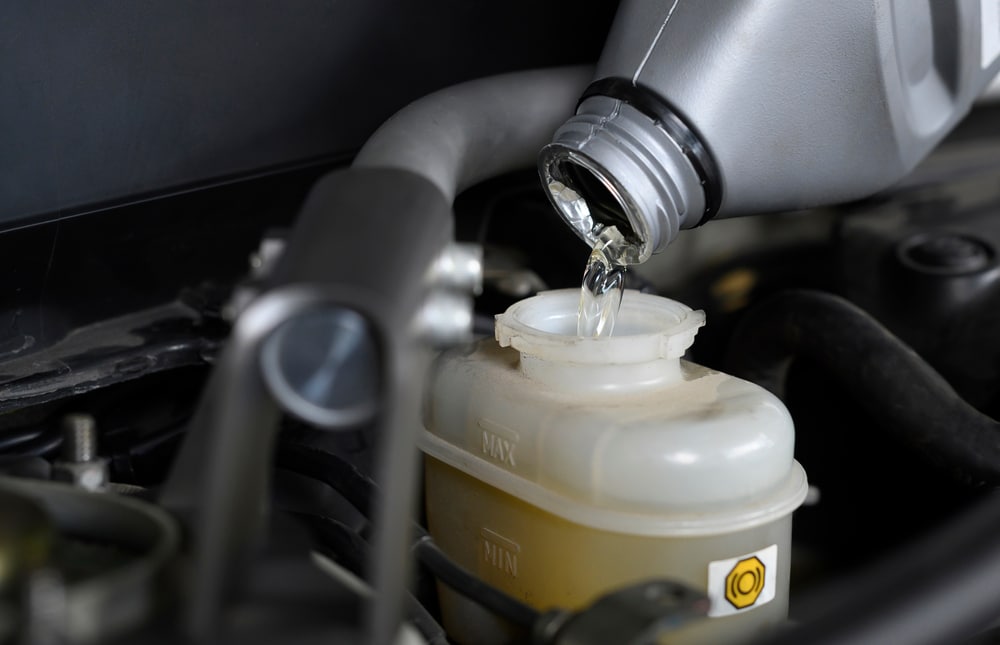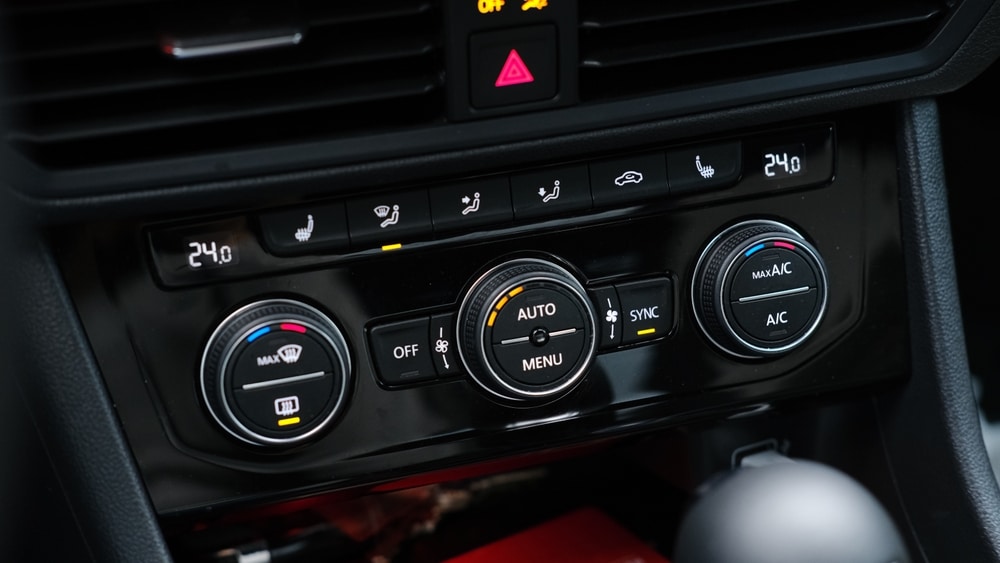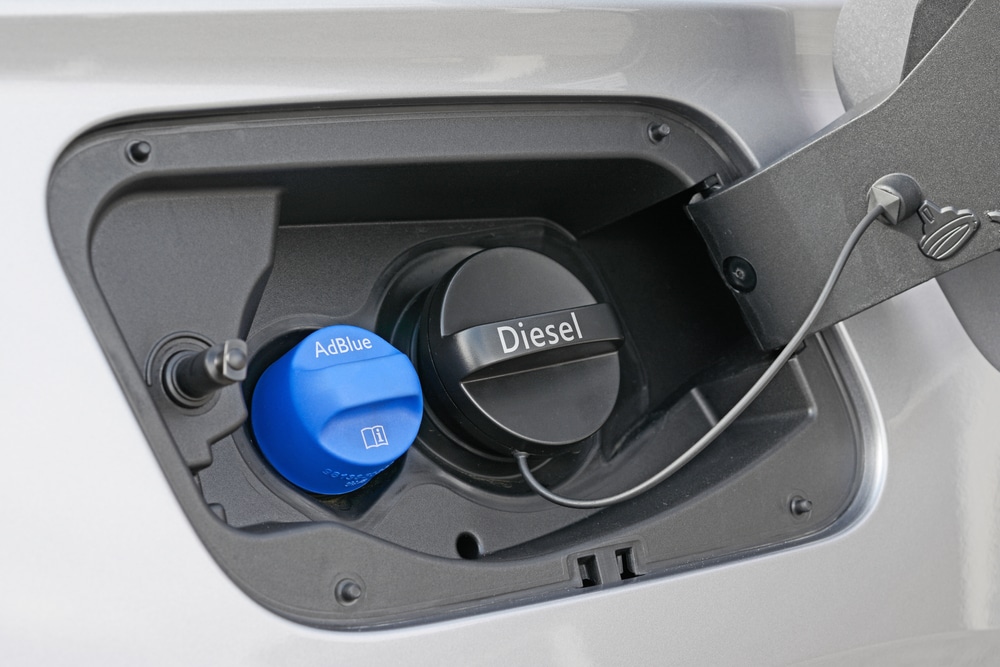Brake Fluid
Brake fluid is the lifeline of your braking system, transferring the force from your foot on the pedal to the wheels with precision and speed. Without it, your brakes would fail to respond effectively. Over time, brake fluid absorbs moisture and deteriorates due to heat and pressure, which can reduce its performance and lead to safety concerns like increased stopping distances or a soft pedal.
At Cole & Miller Automotives, we provide expert brake fluid checks and replacements, ensuring your braking system remains safe and reliable. Serving Bedford, Hitchin, and the surrounding areas, our technicians use the correct fluid type for your vehicle.
Call 01462 730803 today to arrange a brake fluid inspection with Cole & Miller Automotives.

Why Brake Fluid Is Key to Reliable Performance
Brake fluid is one of the most important components of your car’s braking system, ensuring that every press of the pedal delivers controlled and consistent stopping power. Acting as a hydraulic fluid, it transfers force with precision, allowing your brakes to respond instantly when you need them most.
When you apply the brake pedal, the fluid pushes pressure through the brake lines to the callipers or wheel cylinders. These parts then press the brake pads or shoes against the brake disc or drum, creating friction that slows the vehicle safely.
Brake fluid doesn’t just transfer force — it also helps protect internal components from corrosion and ensures that seals and moving parts remain lubricated. It must perform under high heat and pressure, remaining stable in all conditions.
Systems like ABS and electronic stability systems also rely on brake fluid to function effectively. Regular checks and timely brake fluid changes are essential to keep your braking system sharp and dependable.
The Process Behind Brake Fluid and Braking
Brake fluid is what transforms a simple press of your brake pedal into the stopping force that keeps you safe. When you press the pedal, it activates a master cylinder that compresses the brake fluid and builds hydraulic pressure.
This pressure is transmitted through the brake lines to the callipers or wheel cylinders, depending on the vehicle’s design. These parts then press the brake pads or shoes against the brake disc or drum, creating the friction needed to slow the wheels.
In good condition, brake fluid is incompressible, which allows the hydraulic force to transfer instantly and evenly. This gives you a smooth and consistent braking feel every time.
Modern systems such as ABS and electronic stability systems also rely on brake fluid to work correctly. Even though it’s out of sight, brake fluid plays an essential role in ensuring reliable and predictable braking performance.
Where to Look for Your Brake Fluid Reservoir
When you lift the bonnet of your car, the brake fluid reservoir is usually positioned towards the rear of the engine bay, often on the driver’s side. It’s a small, semi-transparent container designed to let you quickly see the fluid level without removing the cap.
Inside the reservoir, a rubber diaphragm or cap seal prevents air and moisture from entering the system. This is vital because brake fluid absorbs water over time, which lowers its boiling point and can reduce braking performance.
Although you can visually check the fluid level, assessing its condition and colour should always be left to a professional.
At Cole & Miller Automotives, our technicians inspect your brake fluid during every service, ensuring your braking system is performing safely and effectively.
A Guide to Brake Fluid Grades and Performance
Brake fluid isn’t a one-size-fits-all product. Different grades are designed to handle varying levels of heat and pressure, and using the wrong type can lead to poor braking performance or system damage. Here’s an overview of the main types:
- DOT 3 Brake Fluid – A glycol-based fluid with a relatively low boiling point, commonly used in older vehicles without advanced braking technologies. DOT 3 is hygroscopic, meaning it absorbs moisture over time, which reduces performance and requires regular replacement.
- DOT 4 Brake Fluid – The most common type for modern vehicles. With a higher boiling point than DOT 3, DOT 4 is well-suited for cars equipped with ABS and traction control systems. Like DOT 3, it absorbs moisture and needs changing at recommended intervals.
- DOT 5 Brake Fluid – A silicone-based fluid that does not absorb water. It is typically used in specialist or classic vehicles but must not be mixed with DOT 3 or DOT 4, as this can cause seal damage and braking issues.
- DOT 5.1 Brake Fluid – Provides high performance similar to DOT 5 but is glycol-based like DOT 3 and DOT 4, making it compatible with modern braking systems.
At Cole & Miller Automotives, we select the correct brake fluid for your vehicle to ensure optimum performance and safety.
How Heat, Moisture and Contaminants Impact Brake Fluid
Brake fluid is engineered to withstand extreme conditions, but its performance decreases over time. Heat, moisture, and contamination are the biggest threats to its ability to keep your braking system safe and responsive.
Moisture Absorption – Brake fluid is hygroscopic, meaning it naturally absorbs moisture from the air, even through tiny gaps in hoses and seals. As water content increases, the boiling point of the fluid drops, increasing the risk of vapour lock — a condition where bubbles form during hard braking, reducing hydraulic pressure.
Heat and Pressure – Every time you brake, the system generates heat. During repeated or heavy braking, this heat can become extreme, causing the fluid to degrade chemically and become less stable under stress.
Chemical Additives and Stability – Brake fluid contains additives that prevent corrosion and protect seals. As the fluid ages, these additives break down, leaving components vulnerable to rust and wear.
Contamination – Rust particles, rubber fragments, or even the wrong fluid type can contaminate the braking system, affecting performance and damaging parts.
Old or Incorrect Fluid – Using a brake fluid grade that doesn’t match your vehicle’s requirements, or fluid that’s past its service life, can impact ABS, traction control, and braking consistency.
Brake fluid has a shelf life, which is why manufacturers recommend regular checks and timely replacements. At Cole & Miller Automotives, we test your brake fluid at every service and advise when a change is needed to ensure maximum safety.
Warning Indicators Your Brake Fluid Is Failing
Brake fluid gradually degrades, and there’s no dashboard warning light to alert you. Knowing the signs of failing brake fluid is essential to maintain safe braking. At Cole & Miller Automotives, we check brake fluid during every service to prevent issues before they affect your safety.
Look for these warning indicators:
- Soft or Spongy Pedal – If the brake pedal feels less responsive or requires more pressure, moisture or air in the fluid may be reducing its hydraulic force.
- Brake or ABS Warning Lights – Some vehicles display these lights if brake fluid levels drop or pressure is uneven.
- Burnt or Chemical Smell – A strong odour from the brake fluid when the reservoir cap is removed is a sign it may have broken down.
- Discoloured Fluid – Fresh brake fluid is clear or pale. Dark, dirty, or cloudy fluid means it is contaminated and needs replacing.
If you spot any of these signs, book a brake fluid inspection with Cole & Miller Automotives in Arlesey. Our team will ensure your braking system remains safe and effective.
Why Timely Brake Fluid Maintenance Is Vital
Brake fluid may seem like a small detail, but delaying its replacement can have serious consequences. Over time, brake fluid absorbs moisture and loses its ability to transmit pressure effectively, which can lead to longer stopping distances, spongy brakes, or even complete brake failure.
Initially, any changes might seem insignificant, but as brake fluid absorbs water or begins to break down, your braking performance can steadily weaken, often unnoticed.
Old brake fluid also encourages corrosion inside callipers, master cylinders, and brake lines, creating costly damage that can be avoided with regular maintenance.
This is why manufacturers recommend routine brake fluid checks and changes, even if your car “feels fine.” At Cole & Miller Automotives, we test the condition of your brake fluid at every service and advise you on the right time to replace it, keeping your braking system sharp and dependable.
Why Choose Cole & Miller Automotives for Brake Fluid Care
Brake fluid is critical to your vehicle’s braking performance, but it naturally deteriorates due to heat and moisture. If it isn’t replaced on time, it can result in a spongy pedal, reduced stopping power, or even brake failure during an emergency stop. Regular checks and changes are essential to avoid these risks and keep your braking system working as intended.
At Cole & Miller Automotives, we provide thorough brake fluid checks and professional replacements. Our technicians ensure that the correct fluid type is used and that your entire braking system is performing safely and effectively.
Why choose Cole & Miller Automotives?
- We use manufacturer-approved brake fluids and service processes.
- Highly skilled technicians with years of hands-on experience.
- Brake fluid checks included with every service.
- 12-month parts and labour guarantee on all work.
- Courtesy cars available to keep you on the road.
Your safety is always our top priority. If you’re unsure when your brake fluid was last checked, call 01462 730803 or book your brake fluid service with Cole & Miller Automotives in Arlesey today.



